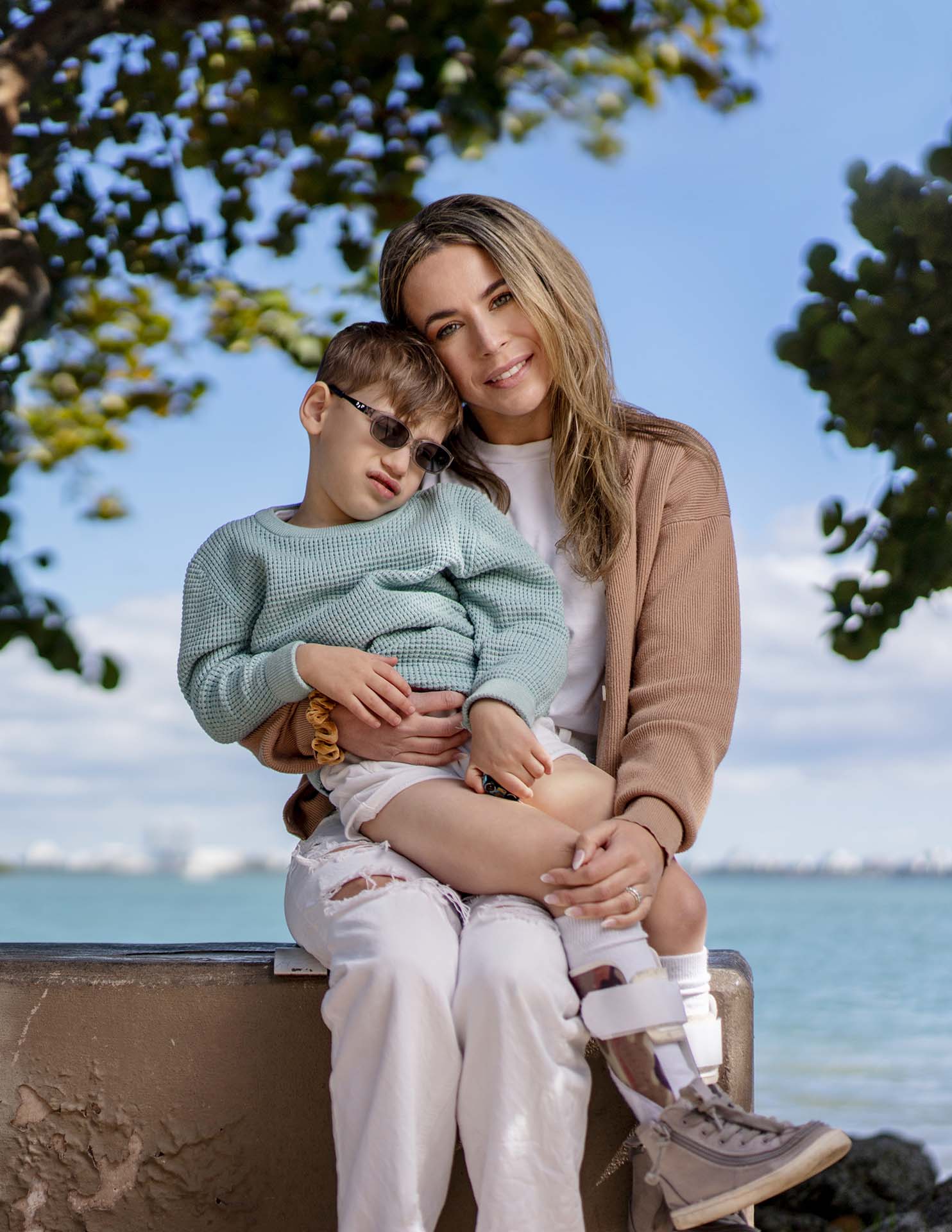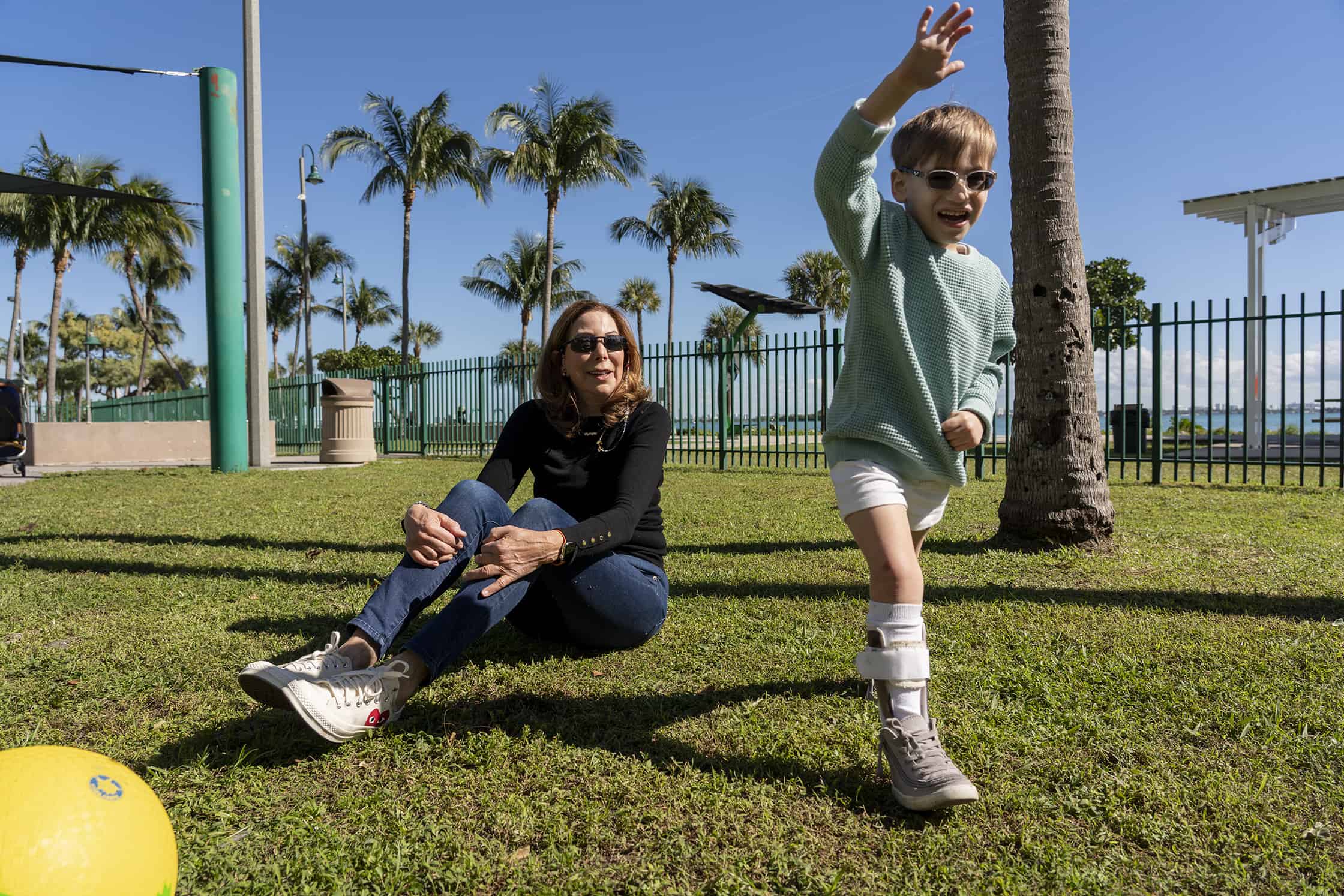DNA Detectives
A family’s journey to cure a rare genetic disorder
By Mikayla Gowaty
Photography by Josh Ritchie/CLUTCH Content Partners

With the CMT4b3 Research Foundation, Iris Schultz is working to find a cure for her 5-year-old son, Hunter.
W
hen 5-year-old Hunter Schultz received a devastating diagnosis of Charcot-Marie-Tooth disease type 4B3, a rare, progressive neuromuscular disorder, his parents decided to take action to find a treatment for their son. The New York City couple created the CMT4B3 Research Foundation and reached out to some of the world’s leading geneticists. One of those was Stephan Züchner, M.D., Ph.D., chief genomics officer of the Miller School of Medicine.
“We knew there was never going to be any progress in developing a treatment for this disease unless we could advance the research,” said Iris Schultz, Hunter’s mother. “When we learned Dr. Zuchner’s laboratory at the John P. Hussman Institute for Human Genomics was transitioning into gene therapy research, we felt like we hit the jackpot.”
After learning the science, the family next had to tackle the financials of a research study. Through fundraising efforts, they raised more than $750,000 in the first year. The foundation made a grant to the Hussman Institute to fund a research study that might offer an effective cure for Hunter and others with similar disorders.
Hunter has two gene mutations that stop the production of a vital protein in the body. Traditional methods of gene replacement therapy do not work in this case because the faulty genes are too large.
“Our proposal is to engineer a miniaturized version of the missing protein,” said Dr. Zuchner. “This is the pinnacle of precision medicine. We make a very fundamental diagnosis and work to correct the specific problem.”
“Being a parent of a rare disease child has so many challenges. There is no other shot out there besides the work that we are doing,” said Schultz.
For more on Hunter’s story, visit everbrighter.miami.edu/rare-disease
New Paths to Discovery

A thriving research enterprise, the lifeblood of any academic medical center, is translating into transformational treatments for patients and saving more lives.
U
Health and the Miller School of Medicine have developed a prominent research portfolio. Our teams at the top-ranked Bascom Palmer Eye Institute are visionary innovators who apply their expertise toward every form of eye treatment. And Sylvester Comprehensive Cancer Center — the only NCI-designated Cancer Center in South Florida — has the region’s largest Phase 1 clinical trials program. Today, we are the No. 1 NIH-research funded institution in Florida — but we know there’s much more we can achieve.
Donor support for Ever Brighter will advance our goal of becoming one of the top institutions in the nation for medical research funding. Private philanthropy will be the key to opening the doors of discovery as wide as possible.
Gifts to the campaign will power our top-tier initiatives. These include a Medical Research Endowment and Research Scholars Program, which will establish a world-class facility with state-of-the-art laboratories, equipment and spaces. Here, physician-scientists will explore treatments and develop cures that will transform care for patients everywhere.
“Research is at the core of our work at Sylvester and the Miller School of Medicine,” said Stephen D. Nimer, M.D., director of Sylvester Comprehensive Cancer Center, executive dean for research and the Oscar de la Renta Endowed Chair in Cancer Research at the Miller School. “It takes a dynamic convergence of extraordinary skill, philanthropic commitment and unwavering dedication from our physician-scientists to make discoveries and improve patient lives.” ![]()



